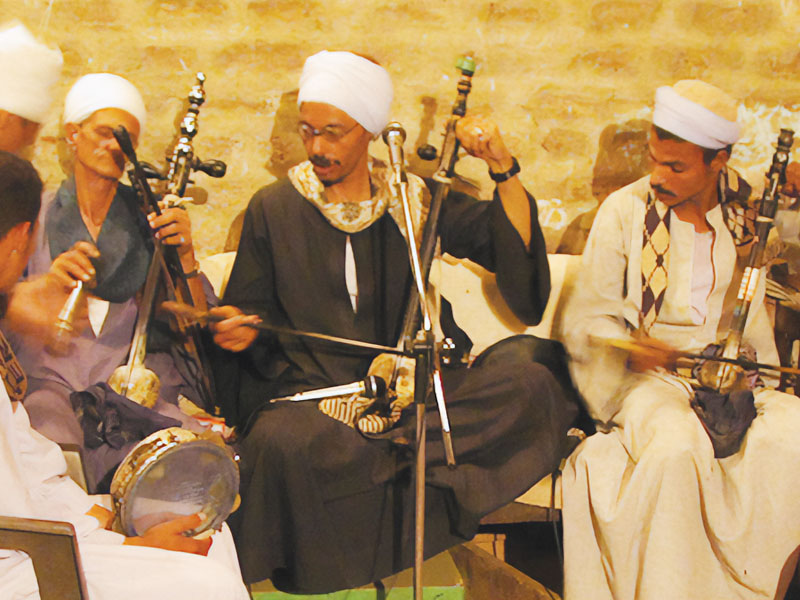The Hilali Epic and the public: A study of forms of audience response
Issue 38

By Dr. Khaled Abu Al Lail, Assistant Professor of Folk Literature, Department of Arabic Language and Literature, Faculty of Arts, Cairo University
Folk discourse is characterised by the audience’s direct response during oral performances. Due to its flexible nature, folk discourse allows for additions and deletions whenever it is performed, so every performance yields a new narration co-authored by the narrator and the audience.
According to Hajjaji, oral narration in general and the Hilali Epic in particular are re-authored during performances where the narrator and the audience engage in a mutual process. If there is no reaction from the audience, the narration fails to convey its message. All narrations are created at the time that the performance is recorded.
According to Lauri Honcho, the narrator's role is not limited to reproducing the memorised narration word by word; the story is in fact reborn with every performance, especially performances on special occasions. The audience has the right to intervene in the performance, and it plays a positive role in folk epics such as the Hilali Epic.
The professional narrator pays attention to the audience’s comments and other reactions, and then asks the poet to answer questions or to address questions to the audience. The poet responds to the audience’s reactions and helps to incorporate them into the story. As Muhammad Al Yemeni says, like a jeweller who can distinguish genuine from fake gold, the poet can distinguish between good and bad audiences, and he knows who will enhance the narration and who will spoil it.
The audience is a key element in the creation of the folk narration and in its development or decline. Over the past 40 years, audience participation in some types of folk narration has declined or ceased.
The folk epic has been affected by this decline. At one point there were ten types of epic, now only the Hilali Epic remains. As Edward Lane observed, all the other folk epics that existed before – including the epics of Antara, Al Thaher Baybars, Al Ameera Dhat Al Himma, and Hamza Al Bahlawan – now exist only in written form. These epics lost their social function, so they are no longer narrated orally.
The Hilali Epic or Bani Hilal Epic is the only Arabic epic that is still narrated orally in the Arab world; other epics appear only in books that were published during or before the 19th Century. The Hilali Epic is the only one that is still being performed.
The Hilali Epic is the only epic that was able to develop and adapt its content to current issues; the contents of other epics expressed only older values and ways of thinking.







































































